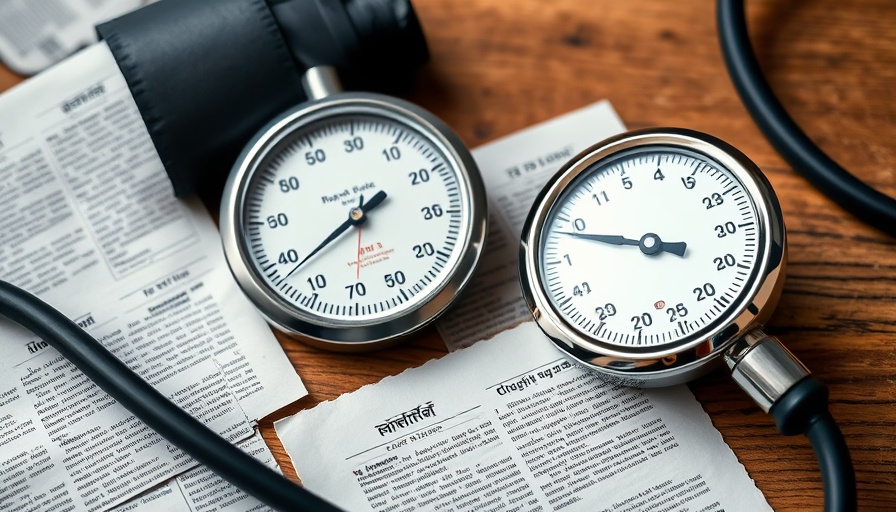
Understanding High Blood Pressure and Its Impact
High blood pressure, or hypertension, affects millions globally and is often described as a silent killer. Many people are unaware they even have it until complications arise. Chronic high blood pressure can lead to serious health issues, including heart disease, stroke, and kidney failure, making it critical to find effective management techniques.
Relaxation Techniques: A New Approach to Managing Hypertension
Recent research has indicated that relaxation techniques can offer a temporary solution for lowering high blood pressure. Practices such as meditation, deep breathing, and progressive muscle relaxation have shown promise in reducing systolic and diastolic blood pressure in the short term. These techniques aim to reduce stress levels, which is significant because stress is a noted contributor to hypertension.
Scientific Evidence Supporting Relaxation Methods
Studies exploring the connection between relaxation and blood pressure suggest that engaging in relaxation techniques can lead to lower blood pressure readings, at least in the short term. For example, individuals who participated in structured relaxation classes showed improved blood pressure levels that persisted even after the sessions ceased. This highlights the potential value of incorporating such practices into daily routines as part of a holistic approach to health management.
Broader Benefits of Relaxation Techniques
Beyond just managing blood pressure, relaxation practices contribute to overall mental and physical well-being. They can alleviate anxiety, improve sleep, and even enhance concentration levels. Incorporating relaxation techniques can transform not only one’s cardiovascular health but also one’s quality of life, connecting the dots between mental health and physical health.
Personal Stories of Transformation
Many individuals who struggled with hypertension have reported positive changes after incorporating relaxation methods into their daily routines. For instance, John, a 55-year-old sufferer of high blood pressure, turned to yoga and meditation after fatigue from medication side effects. Within a few months, John noticed considerable improvements, showcasing how personalized wellness strategies can yield profound benefits.
Expert Opinions: Use Relaxation Techniques Wisely
While relaxation techniques can be beneficial, experts advise they should not replace traditional medical treatments, especially for those with significantly high blood pressure. Instead, they should be seen as complementary strategies. This balanced perspective is crucial for fostering a comprehensive health management plan.
Future Implications: A Comprehensive Health Strategy
As research continues to explore the efficacy of relaxation techniques, integrating these practices into broader health strategies may become a standard recommendation. For people living with high blood pressure, this could mean a more holistic approach to health that combines lifestyle changes, medication, and relaxation methods to foster better outcomes.
In conclusion, while the immediate effects of relaxation techniques on lowering blood pressure are promising, individuals are encouraged to consult healthcare professionals for personalized advice. Exploring these options can lead to a healthier lifestyle and better management of hypertension.
 Add Row
Add Row  Add
Add 




Write A Comment